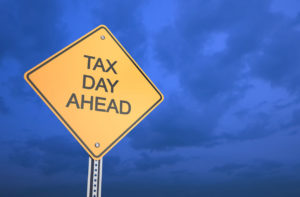2018 Update - How To Be Legally Exempt from the Obmamcare Penalty
 Tax filers want to pay attention to the rules involving the Affordable Care Act on their 2017 tax returns, even as President Trump and Congress eye changes in the healthcare law.
Tax filers want to pay attention to the rules involving the Affordable Care Act on their 2017 tax returns, even as President Trump and Congress eye changes in the healthcare law.
In a reversal, the Internal Revenue Service (IRS) has indicated that it will not accept electronically filed tax returns where the taxpayer does not address the health coverage requirements of the Affordable Care Act (ACA). This is in contrast to the 2017 filing season when the IRS took the position that it would accept and process tax returns where a taxpayer is silent on coverage. The tax agency said, at that time, that the treatment was consistent with their previous policy.
However, for the 2018 tax season, that will not be the case. According to the IRS, electronically filed tax returns will not be accepted "until the taxpayer indicates whether they had coverage, had an exemption or will make a shared responsibility payment." Additionally, paper tax returns "may be suspended pending the receipt of additional information and any refunds may be delayed."
The IRS said, about the change in position, that "[t]his process reflects the requirements of the ACA and the IRS’s obligation to administer the health care law."
Earlier this year, President Trump signed an executive order giving the Department of Health and Human Services and “other executive departments and agencies” the authority and discretion to roll back certain aspects of the ACA. This year, Republicans in Congress have so far been unsuccessful in their attempts to repeal and replace - or even just repeal - ACA. That means that ACA remains good law.
Taxpayers that don’t have coverage must claim a waiver, exemption (typically based on hardship), file for a low cost christian sharing - This one has rates as low as $45 a month for a Bronze sharing option - Use this link to get a quote and learn more http://www.chministries.
You Might Be Exempt
If the lowest-priced plan available to you, through either a Marketplace or Job-based plan, would cost more than 8.16% of your household income you might be exempt from having to enroll in a qualified insurance plan. Learn more by clicking here.
If you are outraged by the high cost of Obamacare and don't have a serious pre-existing medical condition - call us today at 1-800-257-1723 or click here now to schedule an appointment. Let us show you a better way to insure yourself and your family.